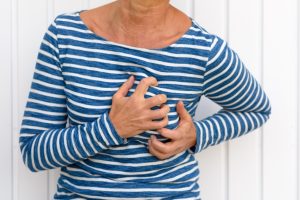
It’s important to recognize the warning signs of a heart attack, so that you are able to call for help sooner rather than later. Early warning signs of heart attack include chest pain, shortness of breath, feeling sick to your stomach, dizziness or lightheadedness, anxiety, cold sweats, headache, jaw pain, sudden and unexplained fatigue, or nausea and vomiting.
By calling for emergency at the first sign of a heart attack, you have a greater chance of surviving a heart attack while alone. A heart attack can become deadly within the first hour of symptoms, so you don’t have that much time to get help.
How to survive a heart attack when alone
The first step to surviving a heart attack when alone involves calling 911 the moment you experience symptoms related to a heart attack. You should avoid driving yourself to the hospital as there is a greater risk of injury if symptoms begin to worsen while you are driving. Call for an ambulance or call a family member or friend to drive you.
If you are around people – whether family and friends or even out in public – you should make those around you aware that you could be experiencing a heart attack, so that in case symptoms worsen someone may be able to administer cardiopulmonary resuscitation.
While waiting for medical treatment, you should avoid any activity and rather sit or lay down and rest. You should stay calm, as anxiety can further increase your heart rate.
Another safety measure if you are experiencing a heart attack alone is to take aspirin or nitroglycerin. If it is safe for you to take aspirin, chew one tablet slowly. If you’ve been prescribed nitroglycerin, take one dose and wait for emergency personnel to arrive.
First few hours of a heart attack are critical
A heart attack can very quickly become deadly. The patient can have better outcomes of a heart attack if they arrive to the hospital before cardiac arrest. The longer a patient goes without treatment, the greater long-term damage can occur to the heart, causing parts of the heart muscle to die.
Treatment should be administered as soon as possible, along with unblocking arteries in order to prevent long-term damage and complications.
Your odds of survival depend on seeking immediate treatment, so recognizing the signs and symptoms of a heart attack will prompt you to get help right away and prevent complications.